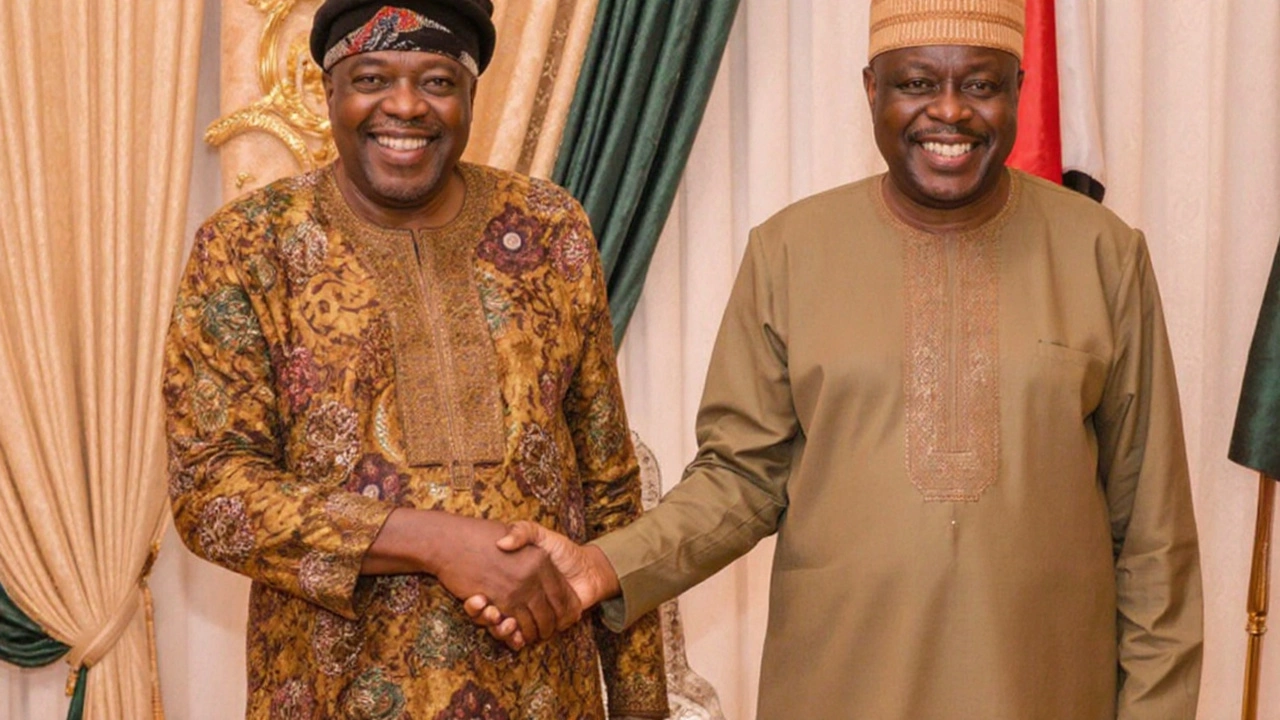Tinubu’s early return and diplomatic stop‑over
President Bola Tinubu left Nigeria on September 4 for his customary vacation in France and the United Kingdom, planning a ten‑day stint abroad. By Tuesday, however, he was back in Abuja, ending his break a day ahead of schedule. His Special Adviser on Information and Strategy, Bayo Onanuga, confirmed that Tinubu would resume official duties immediately upon landing.
While in Paris, Tinubu slipped into the Élysée Palace for a private luncheon with French President Emmanuel Macron. The two leaders used the brief meeting to review the state of bilateral ties, agreeing to deepen cooperation in energy, security and trade. Observers noted the lunch as a sign that Nigeria’s foreign policy remains active even as domestic challenges mount.
Meanwhile, suspended Rivers State Governor Siminalayi Fubara also touched down in Nigeria after a stint in London. The governor’s return, though not accompanied by a formal statement, signals his readiness to re‑engage with the political developments unfolding back home.

Rivers State transition gains momentum under Ibas
In the southeast, the focus is on a different kind of handover. Vice Admiral Ibok‑Ete Ibas (retd.), appointed as the sole Administrator after Tinubu suspended Governor Fubara and declared a six‑month emergency, has launched a series of activities to restore democratic governance.
On Sunday, Ibas led a thanksgiving service in Port Harcourt, marking the official start of the transition programme. He praised the work of the Rivers State Independent Electoral Commission (RSIEC), which completed local government elections within just 30 days – a first in Nigerian electoral history. RSIEC Chairman Dr. Mike Odey called the outcome a “historic achievement,” emphasizing the transparency and speed of the polls.
Ibas told reporters that the state’s stability mandate has been fulfilled and that the next step is a thorough review of the election report, followed by a white paper outlining the way forward. The administrator also hinted at a broader government review that will address security, economic revitalisation and infrastructure repair.
The upcoming Thursday handover promises to restore an elected government after months of military‑led administration. Political analysts suggest that the swift election timeline and the public thanksgiving ceremony are designed to build confidence ahead of the democratic transition.
Both Tinubu’s early return and Fubara’s homecoming arrive at a critical juncture. While the president prepares to oversee the final stages of the Rivers State transition, the governor’s presence may influence post‑handover negotiations and the state’s future alignment with federal policies.







Varun Kumar
Tinubu’s sudden return is just a smoke‑screen for the deep‑state’s hidden agenda.
Madhu Murthi
While you’re busy spouting conspiracy, the facts are clear: Tinubu is back because the federal government can’t afford another crisis in Rivers, and the governor’s cameo is a power play to keep the region under central control. The French lunch was a diplomatic stunt, not a sign of any real policy shift. Anyone who thinks otherwise is living in a fantasy.
Amrinder Kahlon
Oh great, another “thanksgiving” sermon and a “historic achievement” claim-because nothing screams democracy like a military admiral running elections in thirty days. I guess the RSIEC finally discovered the secret to speed: bribery? Or maybe they just printed ballots faster than the voters could show up. Either way, the spectacle is entertaining, if you enjoy watching political theater. The hand‑over on Thursday will be the real test-will the elected governor even have any power left? You’d think after all this fanfare there’d be some substance, but we’ll see.
Abhay patil
Look we need to move forward now the transition is already in motion and the people of Rivers deserve stability the admin’s quick elections showed we can act fast but now focus on rebuilding infrastructure and security we must support the incoming government and keep the momentum going
Amber Brewer
For anyone trying to make sense of the recent developments in Rivers State, it helps to break down the timeline and the institutional players involved. President Tinubu left the country on September 4 for his usual vacation but cut the trip short by returning to Abuja on September 5, citing the need to oversee the transition in Rivers. His special adviser Bayo Onanuga confirmed that the president would resume duties immediately, which aligns with the urgency expressed by federal officials. Meanwhile, the suspended governor Siminalayi Fubara arrived back from London, a move that signals his intent to stay engaged in the political discourse, even though he has not issued a public statement. The federal government appointed Vice Admiral Ibok‑Ete Ibas as the sole administrator, granting him full authority to manage the state during the emergency period. Ibas organized a thanksgiving service in Port Harcourt on Sunday, marking the official start of the transition programme and acknowledging the work of the Rivers State Independent Electoral Commission (RSIEC). RSIEC, under Chairman Dr Mike Odey, completed local government elections within thirty days-an unprecedented speed in Nigerian electoral history. The commission reported that the elections were conducted with a high degree of transparency, though independent observers noted that the compressed schedule left little room for thorough voter education. After the elections, Ibas announced that the next steps include a comprehensive review of the election report and the drafting of a white paper outlining future governance strategies. He also hinted at a broader review covering security, economic revitalisation, and infrastructure repair, suggesting a holistic approach to state rebuilding. The upcoming handover scheduled for Thursday is intended to return power to an elected government, effectively ending the six‑month emergency administration. Political analysts have pointed out that the rapid election timeline and the public thanksgiving ceremony are designed to build public confidence ahead of the handover. The federal government’s involvement, particularly the president’s early return, underscores the political significance of a smooth transition for national stability. Should the transition proceed without major incidents, it could serve as a model for handling similar emergencies in other states. Conversely, any missteps could exacerbate tensions between the federal and state authorities, especially given the governor’s recent re‑entry into the political arena. In summary, the convergence of presidential oversight, the administrator’s actions, and the swift electoral process sets the stage for a potentially stable handover, provided that all stakeholders maintain a collaborative stance.
Kim Coulter
One might argue that the true measure of a nation’s strength lies not in the speed of its elections but in the fidelity of its institutions to the sovereign will of its people. The swift transition in Rivers, while impressive on the surface, raises deeper questions about the balance of power between the federal authority and regional autonomy-a balance that, if tipped, can erode the very fabric of our national identity. It is imperative that we safeguard our heritage against any external or internal attempts to dilute our unity, and that means supporting decisive leadership that places the nation above partisan squabbles. In this light, the president’s swift return and the administrator’s decisive actions can be seen as necessary steps to preserve the integrity of the federation.